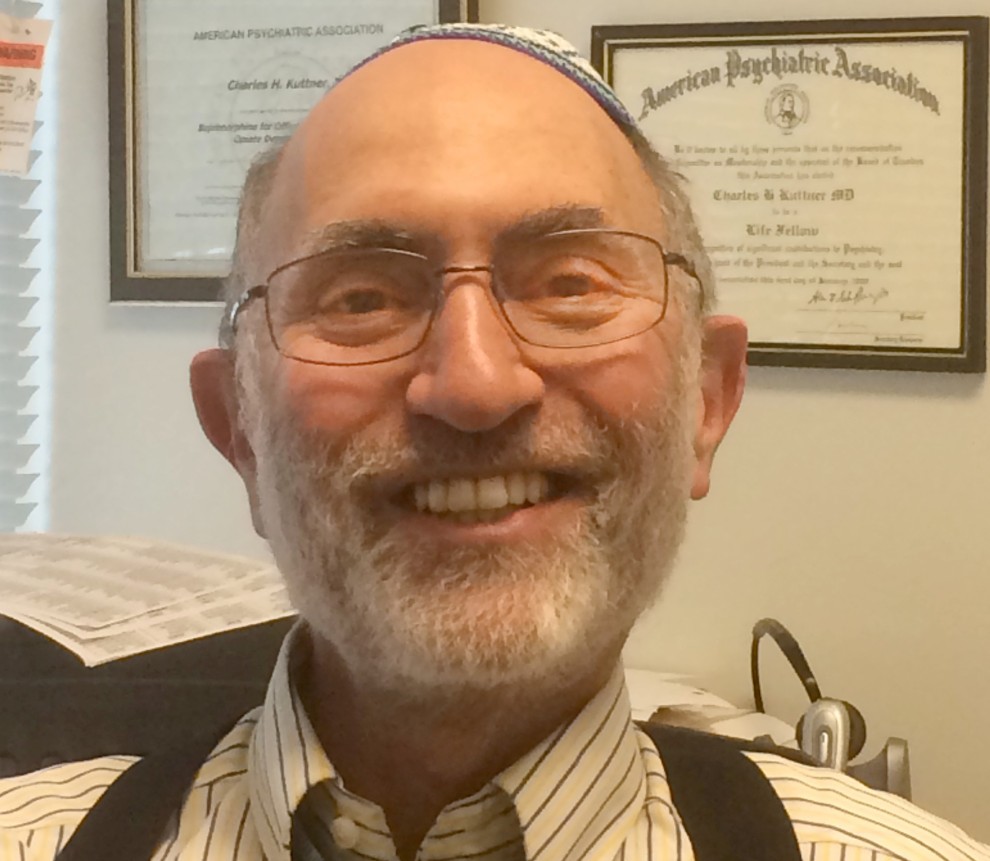
BY AMY R. KAUFMAN
In the second year of the COVID-19 pandemic, psychiatrist Charles Kuttner received a call from a woman who was not his patient.
“I’ve never been quite this anxious,” she said. “Isolation has magnified my loneliness. Time has no boundaries; the future is all uncertain. In the middle of the night, I wake up afraid. My old friend is distant now. There’s so much divisiveness in politics. The whole world is in crisis. I’m not hopeful … What is happening to me?”
In one study of the pandemic’s emotional toll, this anxiety is termed “virus-induced uncertainty.” Kuttner calls it “existential depression.”
This new layer of anxiety is expressed in a narrative that spirals downward from personal insecurities to an apocalyptic ending. “Almost everyone seems to have a sense of looming disaster,” he says.
Kuttner has treated anxiety and depression – closely related conditions – for 45 years. “The milder forms of anxiety and depression are now overlaid with a high level of apprehension brought about by the pandemic,” he says.
The doctor teaches his patients how to adapt to the novel circumstances created by the virus.
First, he says, “Interrupt the negative thinking. By repeating the narrative, we’re reinforcing the hopelessness, loneliness and desperation of it all.”
“Thinking globally may get you down,” he says. “Thinking locally may give you some empowerment.”
He tells his patients they can promote the growth of new nerve endings – the connections between nerves – in the brain.
“One of the ways we can facilitate this is through antidepressant medicines, but exercise is more effective,” he says. “Vigorous walking, lifting, aerobic exercise (or any other kind) leads to the manufacture of nerve endings, which is our way of rewiring how our brains work in their new world.”
Kuttner encourages people to discover the resilience written in their genes. He is the son of a Holocaust survivor and the grandchild of a family that endured pogroms.
“Jews are selectively bred for this,” he says. “We are genetically programmed to be resilient; we’re also programmed to be anxious. If your maternal grandmother lived through a pogrom, you carry with you some of the fear and anxiety she had. Imagine a people like us, surviving the Shoah (Holocaust) and going on and having happy families.”
The doctor himself was thrown into today’s “apocalyptic movie” when he underwent heart surgery in the midst of the pandemic. Vaccines weren’t yet available, and there was a shortage of doctors.
“In my early 50s, I had been treated for lymphoma, and chemotherapy and radiation had damaged my heart,” he says. “But the treatment saved my life and gave me 22 good years. I was apprehensive about the surgery. On a last hilly walk, I worried about all the possible consequences. I arranged with a colleague to help me get neuropsychological testing if I developed memory loss or suicidal depression. I didn’t have to see him.”
The only aftermath he mentions is giving up biking: “That was my identity.” At one time, he biked 1,000 miles per year, and he put 12,000 miles on a couple of two-wheeled recumbent bikes. He misses what he calls the meditative aspects of biking. On summer days, he and his wife, Donna, go kayaking.
A member of Congregation Kesser Israel, Kuttner was raised in Reform Judaism and became more observant many years ago. That was before he, and subsequently both of his children, developed lymphoma.
“Personally, I think it’s very difficult to deal with crises in life, particularly ongoing ones, if one doesn’t have faith,” he says. “Some form of meditation, spirituality, mindfulness is essential. There are times when things are so rough that we need to get off the world for a while. If that’s three minutes staring at the wall or a few moments during Amidah (morning prayer), it’s good to remove oneself from the problems. Rabbi Abraham Twerski’s The Spiritual Self is the best handbook for people exploring spirituality. It asks the right questions, and it is the most nondogmatic book you could imagine.”
Kuttner grieved the loss of a biking buddy and his buddy’s wife to COVID in 2020.
“He was my good friend in Cycle Oregon, and near the John Day River we had one hill that seemed impossible,” he recalls. “The only way to do this hill was, ‘I got this, I can do this.’ Since that hill, Clarno Grade, every hill seems eminently surmountable.”
Amy R. Kaufman is a Portland writer and book editor. She wrote for the print edition of the Jewish Review for 11 years.

0Comments
Add Comment